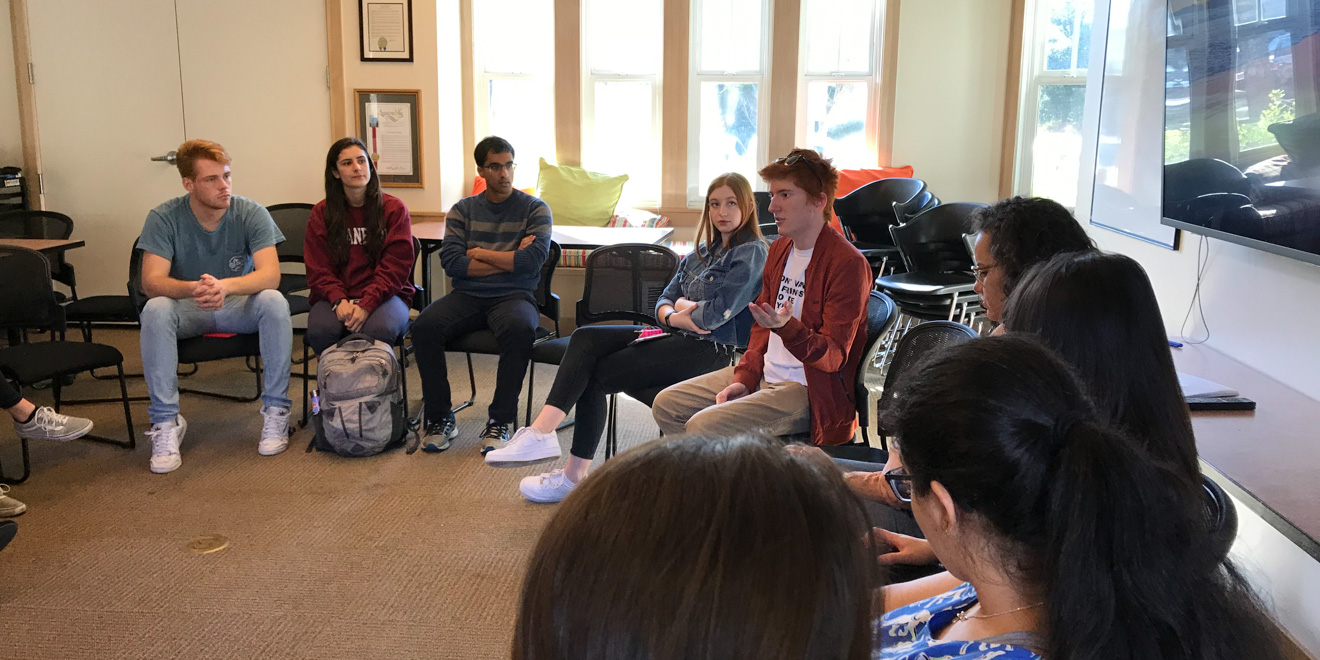March For Our Lives co-founder Ryan Deitsch and survivor of the shooting at Stoneman Douglas High School in Parkland, Florida, shared his experiences with activism over the last year — from meeting Michelle Obama and Martin Luther King Jr.’s family to fending off conspiracy theories — in a Friday event at the Haas Center. Deitsch, sporting a shirt that said “I don’t want my friends to die anymore,” also elaborated on his efforts growing a grassroots anti-gun violence movement.
Deitsch described 22-hour work days in the weeks following the shooting, wherein he and his classmates attended funerals in the morning and spent the rest of their time researching and organizing D.C.’s March For Our Lives set for spring. He used video production experience from his school newspaper to contribute to the movement, and he advised students to similarly utilize their skill sets when engaging in activism.
“Although I can focus day-in and day-out on the negativity, on the Internet trolls, on the actual Nazis I’ve spoken to, on the white supremacist groups like the Proud Boys that I’ve had to meet with, they are slim to none compared to the amount of support, of love and shared experience that so many people all over have taught me,” Deitsch said. “That’s some of the most humbling things that I’ve dealt with in the past year.”
Deitsch has kept busy in his pre-college gap year, embarking on a global tour for gun violence prevention; however, he said the March For Our Lives movement has received relatively little media coverage over the last four months. He cited the group’s trip to Cape Town to accept the International Children’s Peace Prize, an award that Malala Yousafzai had previously received, as one example of a time when March For Our Lives received less attention than it had immediately after the shooting.
“For the first few weeks [following the shooting], there were newspaper people, cameras everywhere, a complete circus in the town,” he said. “After three weeks had passed a lot of the major news networks hightailed out of there. What you have to do is continue to fight whether or not the news cameras are there because we have social media and the ability to get the message out there.”
In addition to his tour, Deitsch and other March For Our Lives founders have been asked to review and support various state representatives’ gun control legislation, particularly extreme-risk protection orders — a due process of law by which a person found to be at risk of harming themselves or others must relinquish any firearms in their possession.
In 2018, 67 state bills were passed dealing with other aspects of gun control.
Stanford in Government (SIG) hosted Friday’s roundtable, which SIG events committee member Emily Katz ’19 said was pulled together in only a few days after Deitsch reached out to inform the group of his interest in visiting campus.
“We’re very grateful to have Ryan here,” Katz said. “He wants to talk to college students, and we want to talk to him, so we’re hoping to facilitate a casual conversation. We didn’t market this super heavy. We wanted it to stay sort of small and intimate.”
A March For Our Lives board member in attendance said that, over the next few weeks, there will be greater emphasis on involving college campuses in the movement. Following the discussion, she gave contact information for people who could assist in setting up a possible March For Our Lives chapter at Stanford.
Contact Sonja Hansen at smhansen ‘at’ stanford.edu.
